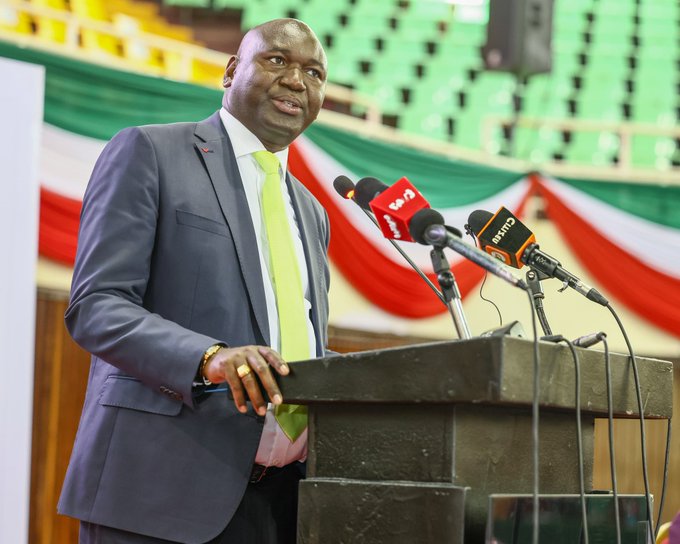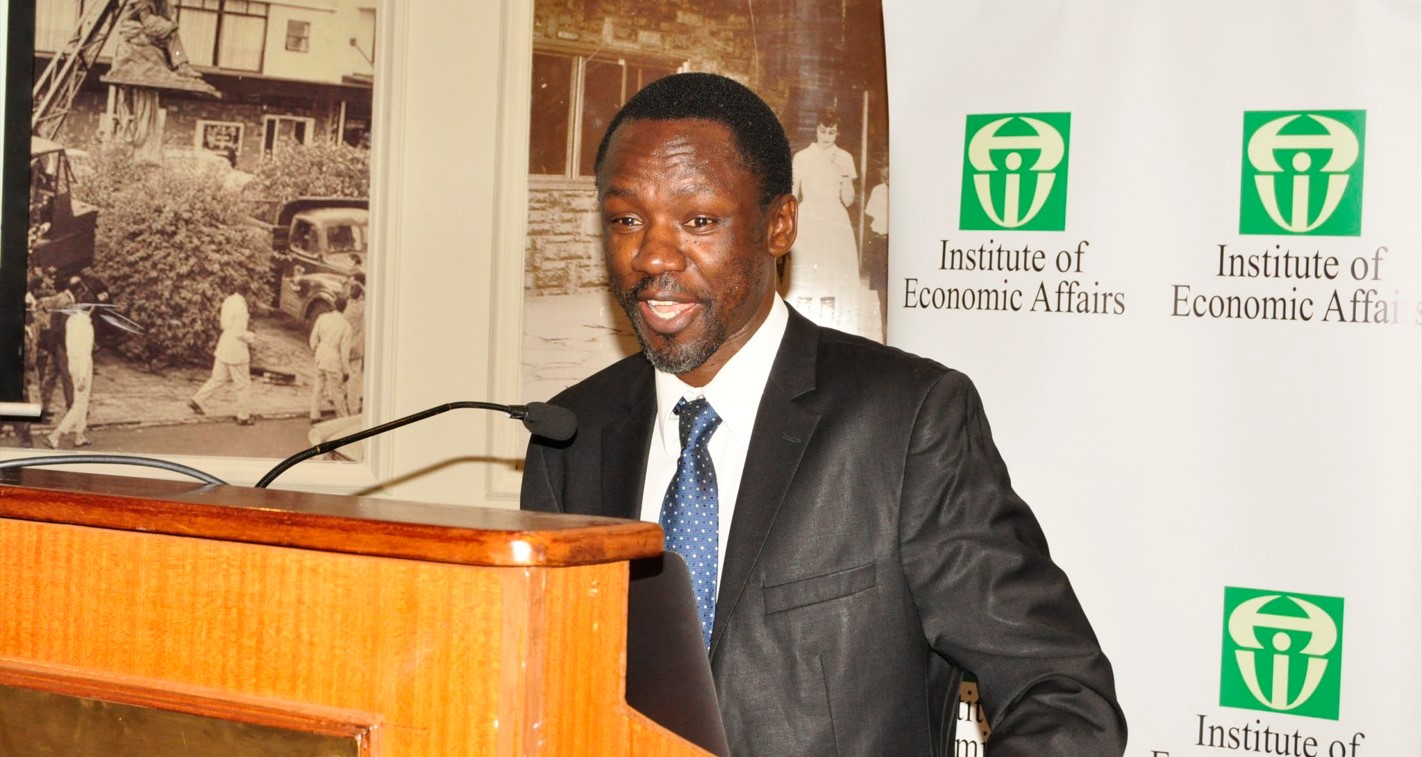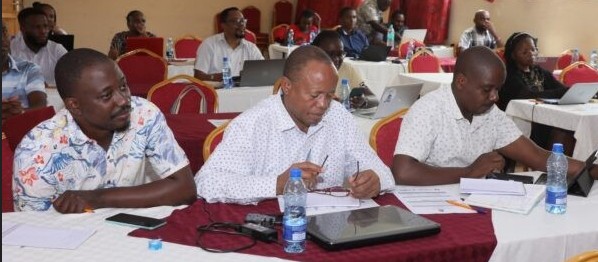North Eastern residents urged to plant trees to mitigate floods and drought
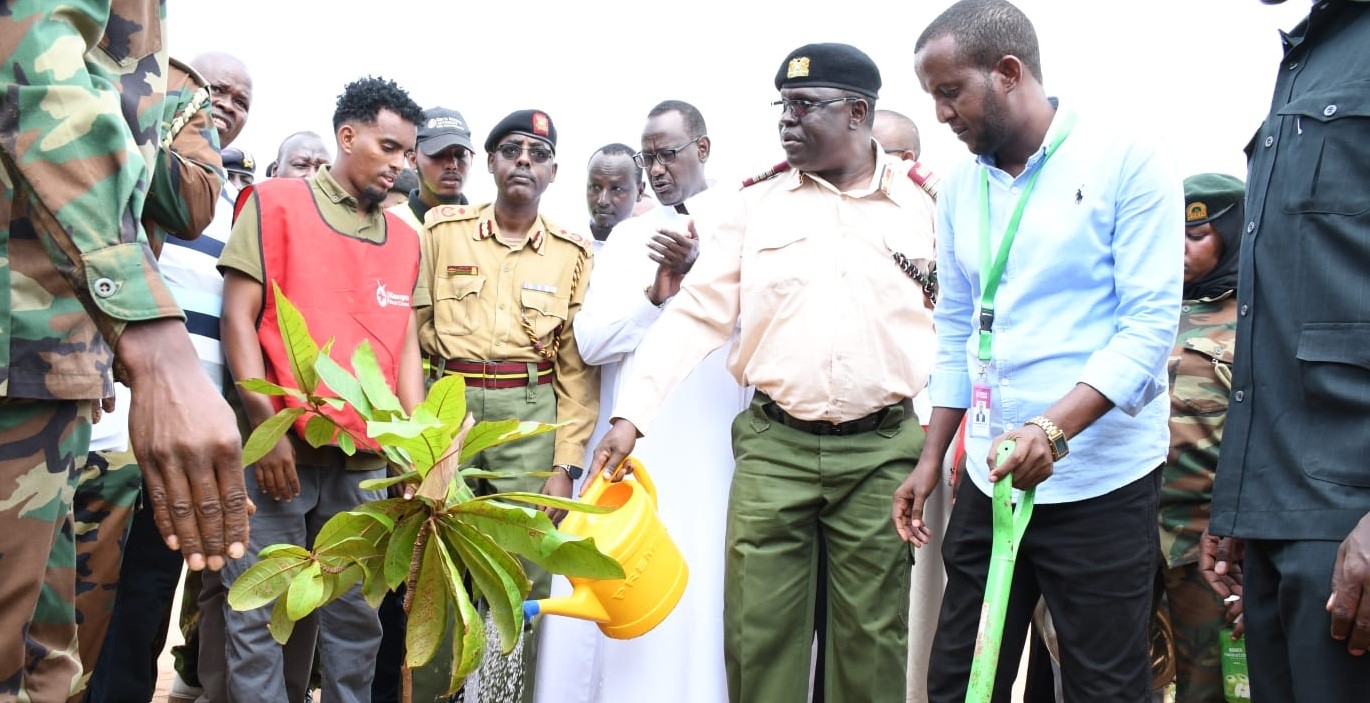
The commissioner added that 4,670 households were affected after the River Tana burst its bank.
North Eastern Regional Commissioner John Otieno has urged residents of the region to plant more trees to reduce the impact of the cycles of floods and drought.
Speaking at Garissa Teachers Training College during the National Tree Planting Day, the Regional Commissioner highlighted the effects of climate change in the region.
More To Read
- Southeast Asia faces catastrophic floods as tropical storm kills 600 hundred
- Garissa town residents call for urgent drainage fix as floodwaters swamp businesses, homes
- MPs link deforestation to deadly landslides, call for stronger disaster preparedness plans
- Officials warn of child safety risks near Ngong River in Mukuru
- Update: 15 dead after massive landslide in Elgeyo Marakwet County following heavy rains
- Heavy rains, gusty winds expected across Kenya
"We have been adversely affected by endless cycles of drought and floods, which have seen residents affected by poverty. We need to plant more trees to overcome the challenges of climate change," Otieno said.
According to the commissioner, 30,000 trees were planted today in Wajir, Garissa, and Mandera counties to mark the national tree planting day.
On flood effects, the commissioner added that 4,670 households were affected after the River Tana burst its bank.
Among those affected were residents of Garissa town who were currently hosted in 12 internally displaced camps located within the Garissa Township sub-county.
He acknowledged the efforts by donor partners, whom he said partnered with the national government to assist the flood victims with food and non-food items.
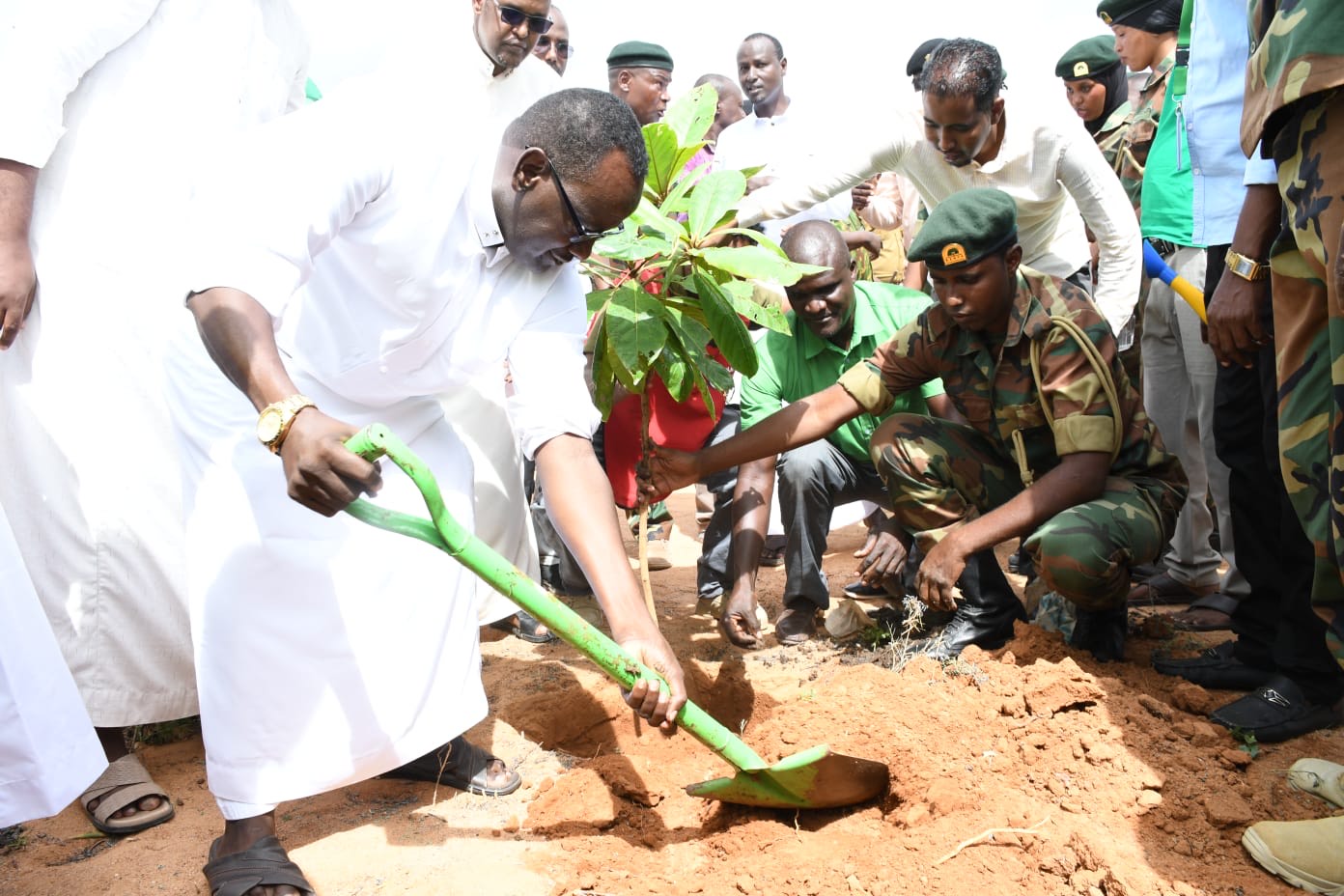 Ahmed Ibrahim, the Garissa County CEC for Water and Environment, plants a tree at Garissa Teachers Training College on Friday, May 10, 2024. (Photo: Issa Hussein)
Ahmed Ibrahim, the Garissa County CEC for Water and Environment, plants a tree at Garissa Teachers Training College on Friday, May 10, 2024. (Photo: Issa Hussein) Ahmed Ibrahim, the Garissa County CEC for Water and Environment
Otieno further called for more support from donor partners, stating that the internally displaced people needed more food and shelter.
Ahmed Ibrahim, the Garissa County CEC for Water and Environment, also urged residents to plant more trees as a mitigation measure against drought and floods.
Ahmed affirmed plans by the county government to employ youth and women under the Ugatuzi na Kazi project, which aims to eradicate the Mathenge weed and plant more indigenous trees.
Abdikadir Aden, the founder of the One Million Trees organisation, urged the county and national government to consider engaging charcoal burners and provide them with alternative sources of livelihood.
"The charcoal burners are massively contributing to environmental degradation because of poverty. They have no other source of income,” Abdikadir said.
He also raised an alarm about the increased River Tana floods and the possibility of the waters sweeping away settlements along the banks unless more trees were planted to curb soil erosion and mitigate flooding downstream.
"Settlements, including Dalolo and Raya, in Sankuri are at risk. We need to formulate a river bank protection programme that will help reduce the impact of the floods," he warned.
Meanwhile, the Kenya Forest Service, Kenya Wildlife Service, KeNHA, Mercy Cops, UNHCR, Kenya Forestry Research Centre, National Environmental Management Authority, and Equity Bank, participated in the tree planting exercise.
Top Stories Today

